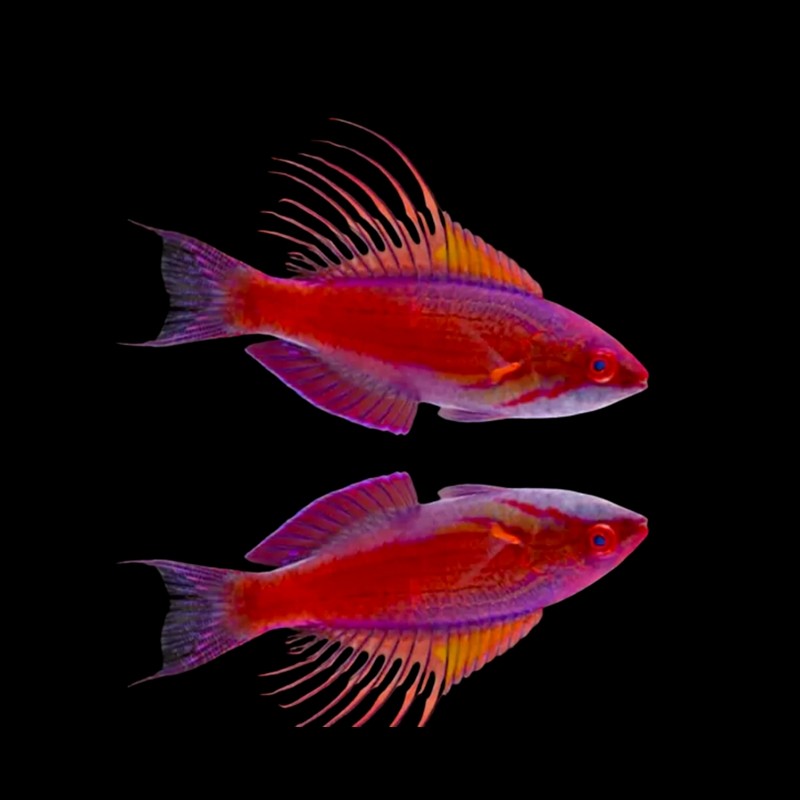- Out of Stock




No one offers a better selection of healthy marine fish and invertebrates for the saltwater aquarium than Reeffishcenter. From angels, to clownfish, gobies, tangs, wrasse, anemones, Crabs, and more... The finest specimens in the world are just a click away. Find...
The Blue Flasher Wrasse is a dazzling species that exemplifies the beauty of the genus Paracheilinus. This gorgeous wrasse invigorates peaceful marine aquariums with amazing color, spectacular finnage and dynamic activity. In fact, the boisterous activity of the Blue Flasher Wrasse can embolden shy fishes to spend more time in the open. Posing little threat to most invertebrates, the Blue Flasher Wrasse is a highly-desirable addition to the peaceful community reef aquarium.
The Blue Flasher Wrasse sports a vibrant coloration that immediately catches the eye. The predominant red coloration provides a striking background for the stitching of blue coloration that runs across its body in layers. Demonstrating sexual dichromatism, the coloration of male and female Blue Flasher Wrasse is distinct in difference. The female is more uniform in coloration, demonstrating a subdued elegance. In contrast, the male Blue Flasher Wrasse can exhibit a wild array of color. When the male Blue Flasher Wrasse develops its display coloration, it is easy to understand why it is also known as the Peacock Flasher Wrasse. The back develops a spectacular metallic blue coloration that is simply electrifying. The 8 elongated dorsal fin filaments and a pair of tail filaments add to the showy visual display of the male Blue Flasher Wrasse.
The Blue Flasher Wrasse has been reported from shallow reef crests and on sheltered reefs at depths of 20 to 114 ft. Similar to other Flasher Wrasse, the social and gregarious Blue Flasher Wrasse prefers to occupy the open water column. However, the Blue Flasher Wrasse will benefit from rockwork aquascaped with plenty of caves and crevices where a quick retreat is possible if threatened. The Blue Flasher Wrasse is best kept in small groups. To maximize success introduce all the Blue Flasher Wrasse at the same time or introduce the females before the male. A tight-fitting canopy is also recommended.
Flasher Wrasses should be fed two or three times a day in order to maintain their body weight. Since they feed on zooplankton and rarely pick at organisms on live rock, they will not thrive in the reef tank if they are fed infrequently. A good protein skimmer and Live Sand will help decrease the build-up of dissolved organics that may result from this frequent feeding regime.